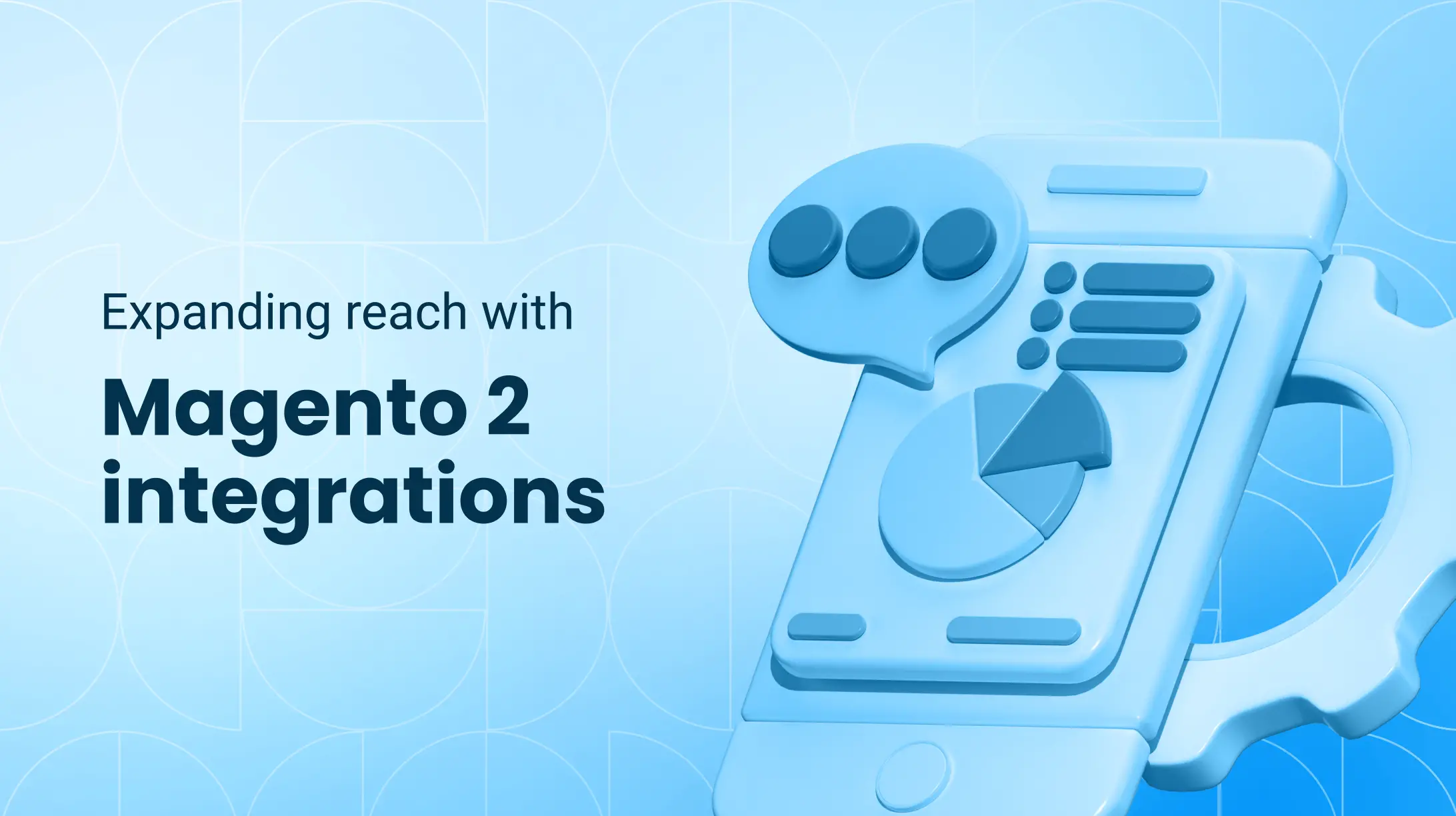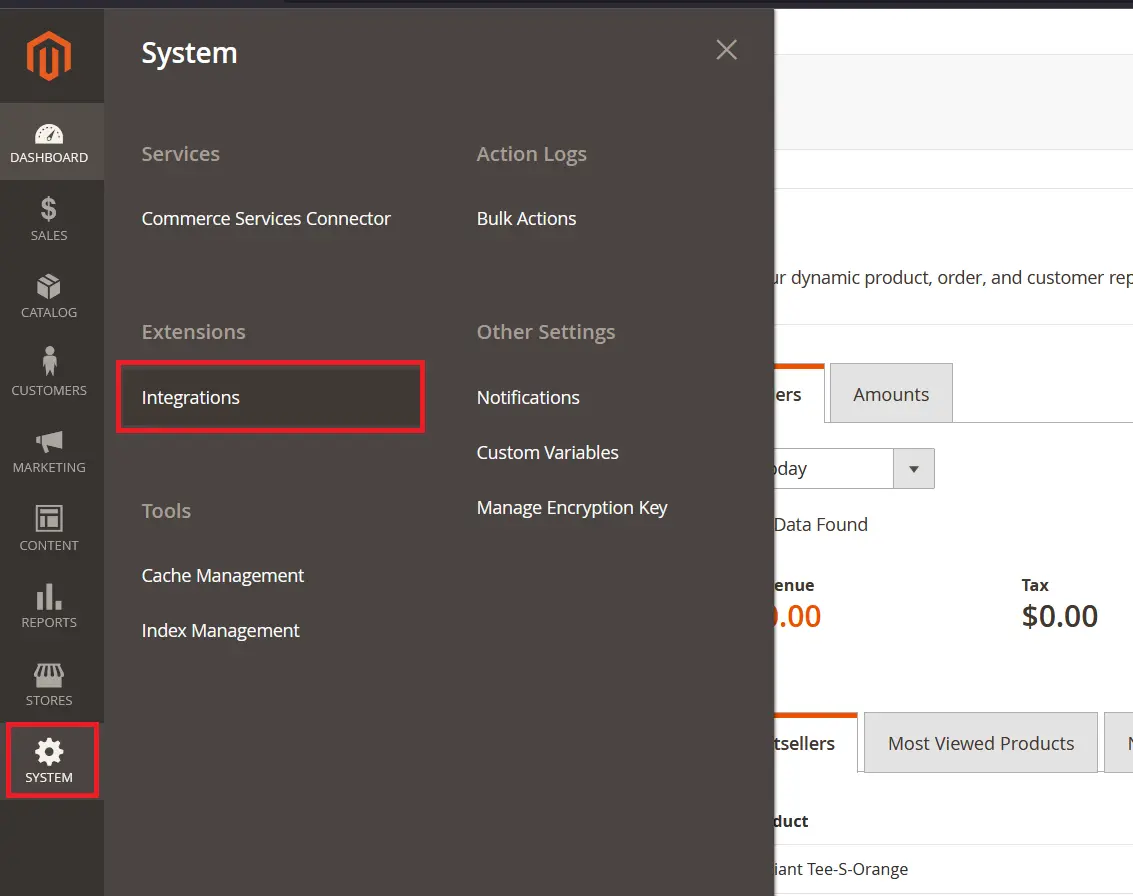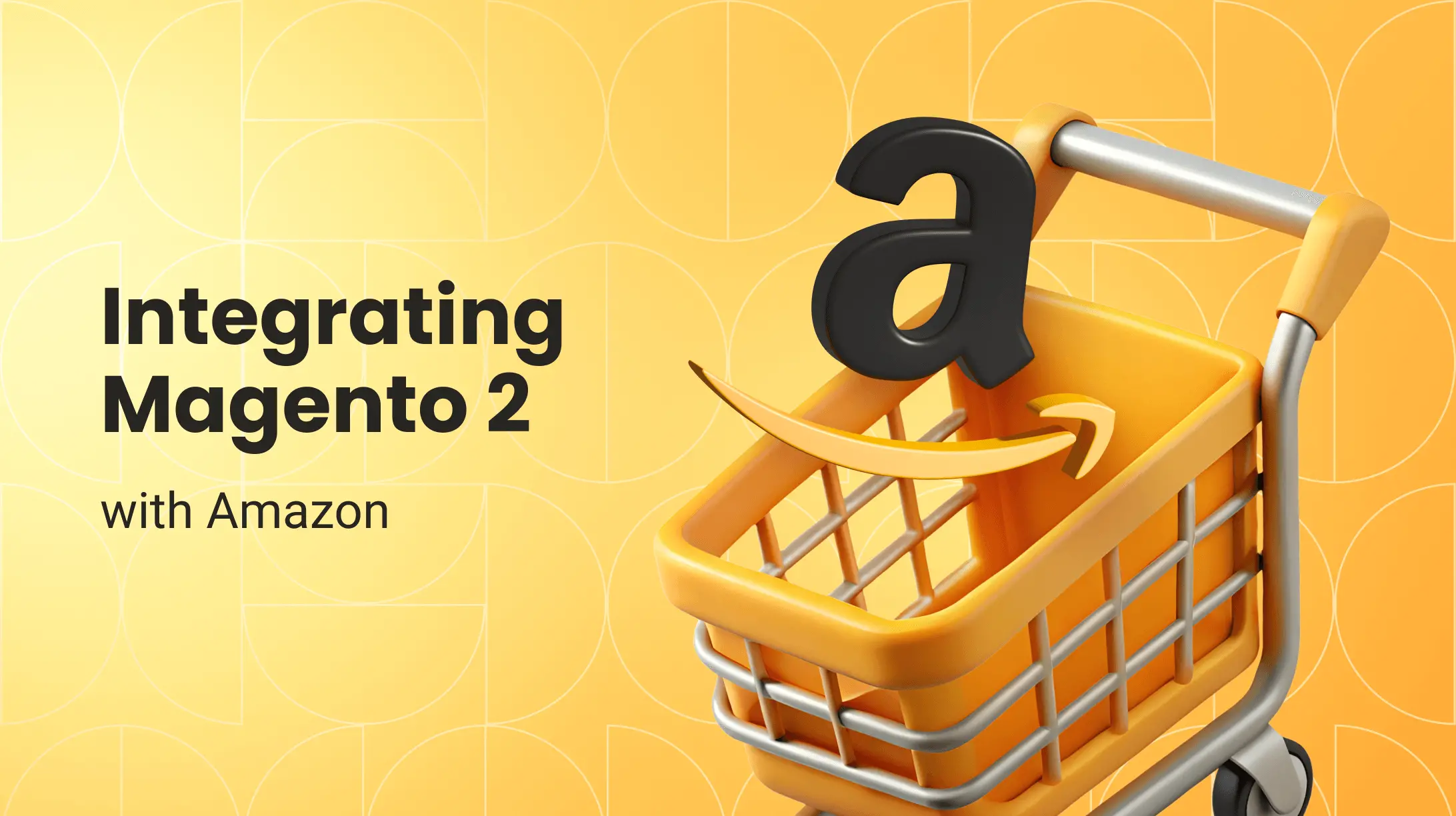0%

Since its original release in 2015, Magento 2 has become much more than just another e-commerce platform. Written in PHP, it has quickly risen to be one of the leading platforms of its type in existence – to the point where it's estimated that more than 150,000 e-commerce stores have been created using it as their foundation.
Integrating Magento with the third-party software you use daily is a great way to sync data between the two. As a result, you have a "single source of truth" for your e-commerce store. In this article, we’ll take a look at the most popular integrations with Magento and the advantages they can bring to your business.
Benefits of Magento 2 Integration
Magento integration offers numerous benefits that boost e-commerce businesses’ operations, enhance functionality, and drive growth. Here are some key benefits of integrating Magento with other systems:
Enhanced Functionality
Integrating Magento with third-party systems such as ERP (Enterprise Resource Planning) software, CRM (Customer Relationship Management) platforms allows you to automate tasks, provide personalized customer experiences, and optimize business processes.
Improved Efficiency
Integration eliminates the need for manual data entry and streamlines processes across various systems. This improves efficiency by reducing errors, saving time, and increasing productivity. For example, integrating Magento with inventory management systems ensures accurate stock levels and prevents overselling or stockouts.
Seamless Customer Experience
Integrating Magento with CRM systems enables you to centralize customer data and provide a seamless shopping experience across channels. With a unified view of customer interactions and purchase history, you can personalize marketing campaigns, offer targeted promotions, and provide exceptional customer service.
Expanded Reach
Integrating Magento with popular marketplaces such as Amazon, eBay, and Etsy allows you to expand your reach and tap into new customer segments. By listing your products on multiple channels directly from your Magento dashboard, you can increase visibility, attract new customers, and drive sales growth.
Data Synchronization
Integration ensures real-time synchronization of data between Magento and other systems, which ensures data accuracy, eliminates discrepancies, and enables better decision-making based on up-to-date information.
Scalability
Whether it's adding new products, expanding into new markets, or integrating with additional systems, Magento's flexible architecture and extensive integration capabilities support your business's growth trajectory.
Cost Savings
Integration reduces manual labor, eliminates duplicate data entry, and minimizes the risk of errors, resulting in cost savings over time. By automating repetitive tasks and streamlining processes, integration helps optimize resource allocation and improve overall operational efficiency.
Popular Magento Integrations
Integration bridges the gap between your Magento store and essential tools, enabling smoother operations, enhanced customer experiences, and, ultimately, greater business success. Let’s look at some of the most popular Magento integration options:
Magento 2 QuickBooks Integration
For businesses utilizing QuickBooks for their accounting needs, Magento 2 QuickBooks integration offers a seamless solution for syncing data between your Magento store and accounting software. From tracking sales and expenses to managing inventory and generating financial reports, this integration empowers you to maintain accurate financial records and make informed business decisions.
Whether you go for Magento 2 QuickBooks desktop integration or Magento 2 QuickBooks online integration (a cloud-based version of QuickBooks), you end up streamlining your financial management processes, ensuring accurate financial records, eliminating manual data entry errors, saving you time, and improving overall efficiency.
Additionally, if you use QuickBooks Online, you can enjoy real-time synchronization that enables you to make informed financial decisions on the go.
Pimcore Magento 2 Integration
Efficient product management lies at the heart of any successful e-commerce business. With Pimcore, you can make the most out of your inventory in Magento. Pimcore's comprehensive digital asset management and product information management features complement Magento's e-commerce functionalities, enabling you to create, manage, and distribute product data seamlessly across multiple channels.
Magento 2 Amazon Integration
Bridging the gap between Magento and Amazon facilitates a global expansion of your store. The Amazon Magento 2 integration helps you seamlessly connect your Magento store with the world's largest online marketplace. By listing your products on Amazon directly from your Magento dashboard, you can tap into Amazon's vast customer base and leverage its powerful selling tools to maximize your sales potential.
Magento 2 NetSuite Integration
NetSuite Magento 2 integration empowers your business with streamlined operations, efficient order management, and enhanced customer relationships. When you synchronize workflows and key business data between Magento and NetSuite, you can focus on driving business innovation while leaving administrative tasks behind.
Magento 2 SAP Integration
Integrating Magento with SAP ERP systems ensures seamless real-time data exchange, enhancing inventory, order, and customer data management. This reduces manual errors, optimizes supply chain management, and supports business scalability, allowing companies to grow confidently with synchronized and efficient ERP systems.
Mailchimp Magento 2 Integration
Mailchimp Magento 2 integration enhances email marketing efforts by connecting your Magento store with Mailchimp. It supports customer segmentation, automates follow-ups, and personalizes marketing campaigns based on purchase history, enhancing customer engagement and driving sales.
Magento 2 Salesforce Integration
Magento 2 Salesforce integration ensures efficient CRM operations by syncing customer data, sales, and other vital information. This connection enhances customer relationship management and supports sales and marketing strategies, optimizing business outcomes.
Magento 2 PayPal Integration
Offering a secure payment gateway, Magento 2 PayPal integration ensures a smooth checkout experience for customers. Supporting various payment methods, it enhances convenience and security, leading to improved customer satisfaction and increased conversions.
Magento 2 Google Analytics Integration
Google Analytics integration with Magento 2 allows businesses to track website traffic and user behavior. This integration provides valuable insights into customer interactions and conversion rates, enabling data-driven marketing strategies and business growth.
Magento 2 REST API Integration
Magento 2 REST API enables seamless integration with external applications, allowing interaction with product, customer, and order data. It supports third-party services, automates processes, and offers scalable, customized solutions for enhancing e-commerce functionality.
5 Methods of Magento E-Commerce Integration
Various approaches to integrating Magento offer distinct benefits and are tailored to specific business needs:
1. API Integration
API integration utilizes Magento's REST or SOAP APIs for direct connectivity with external systems, facilitating real-time data exchange. This method provides high flexibility and control, allowing developers to customize integrations to meet specific operational needs, such as automating inventory updates or syncing customer details.
Example: Magento Salesforce Integration: Use APIs to enable real-time synchronization of customer and order data, ensuring accurate CRM records and enhanced customer relationship management.
2. Pre-built Extensions
Pre-built extensions available in the Magento marketplace offer out-of-the-box solutions for integrating with popular tools and services. These extensions simplify the integration process, reducing development time and effort, and are ideal for adding functionalities such as payment gateways or marketing tools.
Example: Magento PayPal Integration: Quickly add secure payment options to your store by installing a PayPal extension, streamlining the payment process for customers.

3. Custom Development
Custom development involves creating tailored integrations through bespoke coding. This approach is suitable for businesses with unique requirements that off-the-shelf solutions cannot meet, although it typically requires higher technical expertise and investment.
Example: Magento Inventory Management: Develop custom modules to integrate with complex supply chain systems, ensuring accurate inventory levels and order processing unique to business operations.
4. Middleware Solutions
Middleware solutions act as intermediaries, efficiently managing and coordinating data flow between Magento and other systems. This approach supports complex integrations by providing a centralized platform to control and process data from multiple sources.
Example: Magento SAP Integration: Utilize middleware like Dell Boomi to connect Magento with SAP ERP, achieving seamless real-time data synchronization and process optimization.
5. Connector Tools
Connector tools offer plug-and-play interfaces designed for quick and easy integration between Magento and various platforms. These tools automate data synchronization, making them ideal for businesses looking to streamline operations without custom development.
Example: Magento NetSuite Integration: Use tools like Celigo to automate data exchange between Magento and NetSuite, improving operational efficiency and reducing manual intervention.
Leveraging Magento 2 Integrations for Business Growth
Magento 2 integrations offer new opportunities for e-commerce businesses, helping them enhance their operations, expand reach, and drive growth. Whether you're looking to streamline financial management, elevate product management capabilities, or tap into new marketplaces, there's a helpful Magento 2 integration out there to suit your needs.
FAQ
What is Magento integration?
Magento integration connects Magento with external systems like payment gateways or marketing tools to enhance functionality. It automates processes, improves data accuracy, and provides a seamless shopping experience.
How to integrate API in Magento 2?
Integrate an API in Magento 2 using the web API framework, supporting REST and SOAP. Configure API settings in the admin panel and implement modules/extensions for secure data exchange between systems.
Why is Magento E-commerce Integration Important for a Business?
It's important because it streamlines operations, reduces manual tasks, and ensures data consistency. Integration enhances customer experience with real-time updates, ultimately boosting sales and satisfaction.
Can I integrate Magento 2 with ERP and CRM tools?
Yes, you can integrate Magento 2 with ERP and CRM tools to sync data like orders and inventory. This reduces errors and improves efficiency, providing valuable insights for better decision-making.
Alex excels in creating and approving customization architecture, ensuring robust and efficient solutions for e-commerce platforms. His expertise in Magento allows him to effectively manage tech resources and drive technical projects to successful completion.
Alex excels in creating and approving customization architecture, ensuring robust and efficient solutions for e-commerce platforms. His expertise in Magento allows him to effectively manage tech resources and drive technical projects to successful completion.



